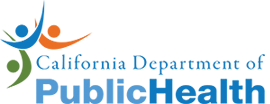Our Difference
CA State Approved (CDPH-Laboratories) Accelerated Phlebotomy Program is a 40 hour program that requires 1 week of training and provides the necessary knowledge and skills. The course comprises a series of lectures and clinical experiences specifically designed for phlebotomy training.
Critical Care Training Center is the largest training center providing healthcare education for hospitals, laboratories and clinic settings and is one of the top schools for Phlebotomy in California (CA), Los Angeles County (LA), North Hollywood, Burbank, Glendale, Studio City, Sherman Oaks, Van Nuys, Mission Hills, and beyond.
Accelerated Phlebotomy Program is offered throughout Los Angeles. CCTC is an Official Test Center for the State Phlebotomy Exam (Approved NHA Test Center), which means you will take your licensure exam at our location.

Start Training for a New Career
Thanks for your interest! Please fill the information below for more information. By clicking below, I consent to receive calls and/or text messages** by a college representative with information for educational opportunities at the number(s) provided above. I understand calls may be initiated by an automated telephone dialing system. I need not grant this consent to receive information or to be eligible to enroll with CCTC. I also understand that if I no longer wish to receive text messages from CCTC, I can text back “Stop” at any time to unsubscribe from the service. (**Standard rates may apply.)
"*" indicates required fields
Benefits
Accelerated Program
Job Placement Available
Financial Assistance
Weekday & Weekends
CDPH Approved
Earn up to $53,000
Official Test Center
Tuition Includes
STRF Fee
Registration Fee
Course Material
Tuition Fee
Program Details (Certification Requirements, Classes, Training Courses, & Internship Programs)
All Phlebotomy students must have a high school diploma or GED certificate.
Proof of good health: A report that includes medical history, physical examination and PPD test or CXR signed by a healthcare provider performing the physical examination shall be provided to the institution, indicating that the student does not have any health conditions that would create a hazard to him/her and patients or visitors. Due before clinical training begins.
In order to attend this Los Angeles Career College Phlebotomy class, all students must be free from conviction by any court (other than minor traffic convictions) or have clearance from the California Department of Health Services.
Must be able to exert 20-50 lbs. of force occasionally, 10-25 lbs. of force frequently, and/or up to 10 lbs. of force constantly to move objects.

This program is designed for people who plan to work for a clinical laboratory or public health department, clinic, or hospital. The course combines 40-hours classroom instruction and a 40-hours off-site clinical internship to provide students with a comprehensive learning experience.
Lectures include but are not limited to the anatomy and medical terminology pertaining to the circulatory system, specimen collection, risk factors, complications and quality assurance in specimen collection.
Practical instruction provides hands-on training in venipuncture technique with procedures verified through a skills check-off system. The 40-hour externship includes a minimum of 50 successful venipunctures and 10 skin punctures.
Projected Demand
According to the Bureau of Labor Statistics, employment of phlebotomists is projected to grow 23 percent from 2018 to 2028, much faster than the average for all occupations. Bloodwork is always needed in hospitals, diagnostic laboratories, blood donor centers, and many other locations. With an aging population, phlebotomy techs are even more necessary.
Projected Income After Graduation
In 2015, the median income for Phlebotomy Technicians was $31,630. The highest-paying employers were pharmaceutical and medicine manufacturers, who offer a median salary of around $48,760, per the BLS.
Placement Services
The graduate services staff assists students in their job searches after they have successfully completed their studies, by offering information on job opportunities and temporary assignments and guidance in resume preparation and interviewing techniques.
Critical Care training Center makes reasonable efforts to satisfy the wishes of a graduate as to location and type of employment. The more flexible a graduate can be regarding initial employment, the easier it is for the school to assist in the placement process.
In addition to the graduate services available to students, career-planning concepts are also integrated into the curriculum in all training courses and programs. Students participate in specific sessions that cover interviewing techniques, networking, resume writing, and professional dress and conduct.
Phlebotomy Program Week-day Morning Session Hours
(5 Days in Class & 5 Days at a Clinical Site)Clinical Rotations are scheduled in hospital setting for all three shifts: morning, afternoon and evenings are
available. Please refer to the chart below for more details.
| Training Type | Days | Hours | Total Hours |
|---|---|---|---|
| Lecture | Monday-Friday | 8:30am - 4:30pm | 40hrs |
| Clinical | Monday-Friday | Morning 7:00AM - 2:30PM Afternoon 2:00PM - 10:30PM Evening 11:00PM - 7:30AM | 40hrs |
| * Weekend Clinicals available |
Phlebotomy Program Week-day Evening Session Hours
(10 Days in Class & 5 Days at a Clinical Site)Clinical Rotations are scheduled in hospital setting for all three shifts: morning, afternoon and evenings are
available. Please refer to the chart below for more details.
| Training Type | Days | Hours | Total Hours |
|---|---|---|---|
| Lecture | Monday-Thursday | 5:00pm - 9:00pm | 40hrs |
| Clinical | Monday-Friday | Morning 7:00AM - 2:30PM Afternoon 2:00PM - 10:30PM Evening 11:00PM - 7:30AM | 40hrs |
| * Weekend Clinicals available |
Phlebotomy Program Week-end Morning Session Hours
(5 Days in Class & 5 Days at a Clinical Site)Clinical Rotations are scheduled in hospital setting for all three shifts: morning, afternoon and evenings are
available. Please refer to the chart below for more details.
| Training Type | Days | Hours | Total Hours |
|---|---|---|---|
| Lecture | Saturdays Only* | 8:30am - 4:30pm | 40hrs |
| Clinical | Monday-Friday | Morning 7:00AM - 2:30PM Afternoon 2:00PM - 10:30PM Evening 11:00PM - 7:30AM | 40hrs |
| * Weekend Clinicals available |
FAQ: Frequently Asked Questions
A Phlebotomy Technician is responsible for drawing quality blood samples from patients or donors. They also prepare blood samples for medical testing.
As a Phlebotomy Tech, you will play a key role in both the patient experience and the facility’s medical team. Many patients experience fear and anxiety during blood draws, so the Phlebotomy Technician can help ease the patient’s worry and make them feel more comfortable
Successfully pass a phlebotomy program and externship accredited by the California department of public health and receive a certificate of completion from the school. Successfully pass national examination and receive a national certificate. Apply to the state of California for the phlebotomy License.
You will need a high school diploma (or equivalent) to become a licensed Phlebotomist in California.
You can still participate in the program. However, all non-U.S. transcripts must be evaluated by the National Association of Credential Evaluation Services (NACES) or the Association of International Credential Evaluators, Inc. (AICE).
We offer Weekday, Weekend and Evening classes. Our class dates are available online or by giving us a call at (818)766-1111.
There is no deadline for registration. If the course is displayed on our website – that means that it is open for you to register for it. Once the class fills up or starts, the course will automatically close and will no longer be displayed on the website.
Attendance at every class is vital to your ability to take and pass the national exam. If unforeseen circumstances arise, we will do our best to work with you to make up for what you missed. Please do your best to plan your schedule ahead of time to attend every class, as makeup classes can be hard to come by.
We advise you to participate in having your blood drawn in order to understand what others experience when you draw their blood. We adhere to the practice of “I stick you, you stick me” in the classroom, to provide our students with exceptional hands-on training. There is also a required number of draws that need to be met.
Yes, in the state of California it is required. The program manager will assign you to your clinical externship upon completion of the 40 hours of didactic training. You will have to complete 40 hours at your externship location.
As a phlebotomist you must take a national examination and be Nationally certified.
50 venipunctures and 10 skin punctures.
Certified Phlebotomy Technician I certificate authorizes you to perform skin puncture and venipuncture blood collection.
Completion of 40 hours of didactic training and 40 hours of clinical training.
You must complete a total of 6 continuing education hours by an accredited academic institution and submit it for online renewal.
You must complete 10 continuing education credits on your candidate account at NHANOW.com.
No, you cannot work until you are licensed as a phlebotomist by the state.
No, we do not offer job placement. However, we will provide any leads we may have and/or potential options for employment.
It takes a median time of 90 days after a complete application is received for LFS staff to process an application.
We accept all major debit and credit cards. We also except cash/and checks. Payments can be made online when registering or in person before the first day of class.
NHA exam fee, licensing fee, BLS certification, and scrubs.
All students must wear black scrubs for didactic and clinical training. This is mandatory for all our students.
Critical Care Training Center is the largest training center providing healthcare education for hospitals, laboratories and clinic settings and is one of the top schools for Phlebotomy in California (CA), Los Angeles County (LA), North Hollywood, Burbank, Glendale, Studio City, Sherman Oaks, Van Nuys, Mission Hills, and beyond.

